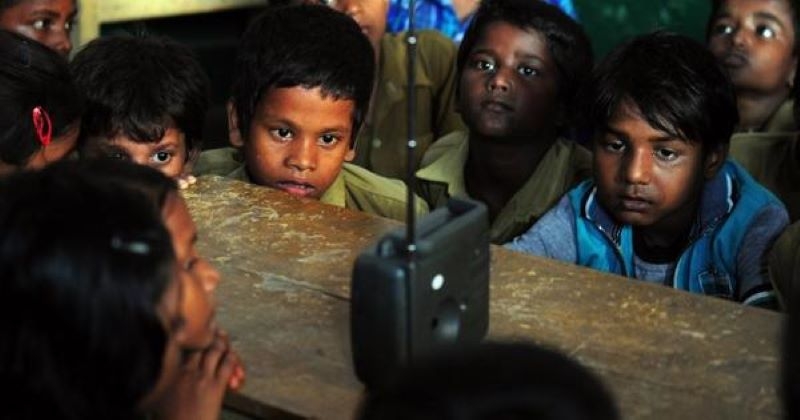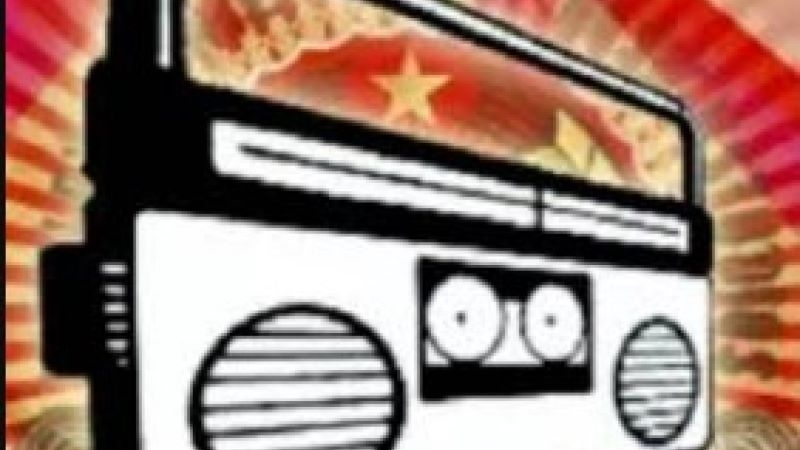Use radio to reach out to students, Prof K G Suresh writes to PM

New Delhi, Apr 10: Amidst all measures taken by the government to contain the damages caused by the COVID-19, Dean of School of Modern Media under the UPES, Dehradun, and former Director-General of Indian Institute of Mass Communication (IIMC) Prof K. G. Suresh wrote an open letter to the Prime Minister raising the issue of difficulties and hardships faced by the students due to countrywide lockdown.
He suggested to set up an inter-ministerial task force to increase the use of radiofrequency so that the students can take its benefit even in the lockdown. He cited the example of Sierra Leone a west African country that successfully implemented similar programs during the Ebola Crisis.
 Prof Suresh said that the world is passing through an unprecedented crisis and we in India too are engaged in a war on the corona. Both central and state governments have taken several steps to alleviate the sufferings of the common man in the wake of the lockdown.
Prof Suresh said that the world is passing through an unprecedented crisis and we in India too are engaged in a war on the corona. Both central and state governments have taken several steps to alleviate the sufferings of the common man in the wake of the lockdown.
Prof Suresh said that many institutions particularly, related to higher education, as also private schools have adopted online teaching technologies in a big way to reach out to the beleaguered student community. However, students in the rural and interior areas, which comprise a sizeable part of the country, remain deprived of these facilities. This is affecting the education of lakhs of youngsters, who are the future of the nation.
He further said that after the outbreak and spread of Ebola in the West African country of Sierra Leone in 2014, over one million school going kids were out of class for several months. Subsequently, the Sierra Leone government partnered with UNICEF and many other voluntary developmental organizations to launch a radio education program for school going kids. The programs were run on 41 government radio stations as also the country’s state-owned tv channel.
Instructors created hour-long teaching sessions for younger children – who listen in the morning – and for older students, who would tune in later in the day. According to UNICEF the lessons became increasingly popular – from less than 20 percent participation initially to 70 percent coverage at its peak.
Similarly, radio Mewat, a community radio station operating from the backward Mewat district of Haryana, also is engaged in imparting subject-specific classes which has resulted in improved performance in the schools. Many other community radio stations too are engaged in a similar exercise. Unfortunately, we have very few community radio stations and they have a limited reach.
Prof Suresh further said that the lockdown impacting educational institutions, many radio stations including Apna Radio 96.9 run by the prestigious IIMC located in the corona affected South Delhi has been shut down whereas this is the time when they should be operating 24 x 7 for the benefit of the local populace. It is here that All India Radio (AIR) can play a critical role in imparting subject-specific education and information to the students at large.
Broadcast radio (AM) today reaches a staggering 99 percent of the Indian population, while FM radio reaches 65%. Unlike TV and print, radio is highly interactive, hyper-local in nature and is free. Its portability enables one to listen to it even while working in the farms or fishing in the deep seas, Prof Suresh said.
Many people prefer the radio as the information provided is crisp and straightforward. Radio helps audiences focus and retains their attention for a longer duration as compared to the TV, where the pictures and headlines distract the viewer. With radio remaining untouched by the menace of fake news so far, it also remains by far the most credible medium. What’s more, to reach out to the millennials, radio stations are today available on digital platforms, as well.

In view of the above, it is suggested to set up an inter-ministerial special task force with representatives from the HRD, I & b, Telecom, Prasar Bharati and community radio stations to chalk out a strategy to reach out through Akashvani and community radio to the students who are preparing for their board and various entrance examinations in the coming days as the lockdown is expected to be lifted only in a phased manner over the next few months.
The School of Media, UPES, Dehradun will be too willing to extend all possible cooperation to the government in this regard for at stake is the future of our students and the country, Prof Suresh assured.
Expressing hope and exuding confidence in PM’s leadership he said that the PM will proactively take up this issue in the larger interest of the student community with whom he has been regularly interacting and counseling on important issues such as examination stress.
Bharati Web







